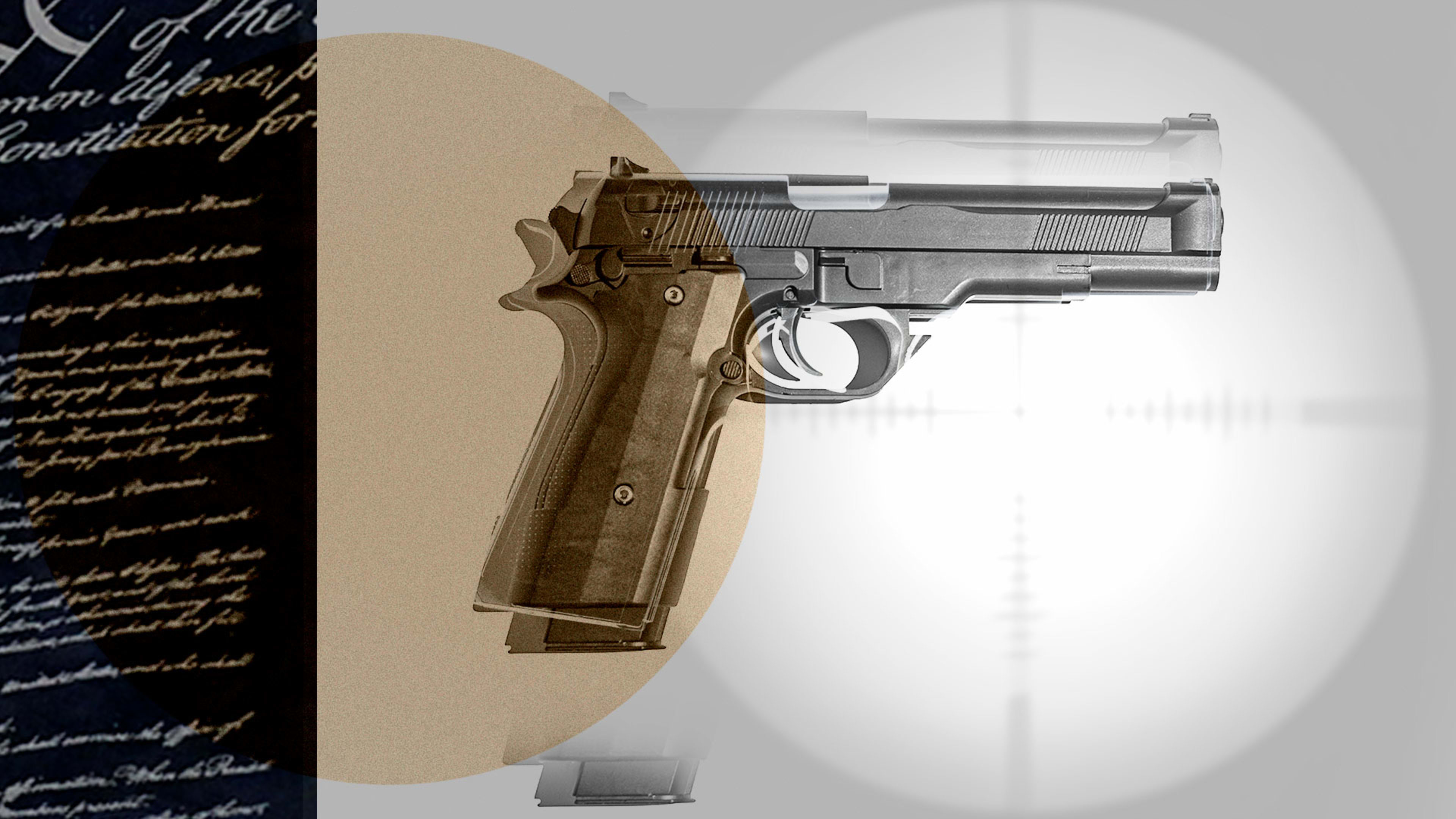A Supreme Court ruling released today, which addresses the right to carry firearms in public, is a major victory for gun rights proponents.
The case, New York State Rifle & Pistol Association Inc. v. Bruen, the most significant on gun rights in 14 years, reverses a century-old regulation in New York that restricts concealed carry permits to only those who show “proper cause.” With today’s decision, citizens will likely no longer have to prove a specific requirement to receive a permit, potentially increasing the public prevalence of firearms in New York, including in crowded city spaces. The decision comes at a time of heightened concern about gun violence across the country, following the school shooting in Uvalde, Texas, which has spurred Congress to work on bipartisan federal gun control legislation for the first time in 30 years.
“We conclude that the State’s licensing regime violates the Constitution,” reads the opinion by Justice Clarence Thomas, adding that it prevents “law-abiding citizens with ordinary self-defense needs.”
The highest court rarely takes on gun cases. The last was 2008’s DC vs. Heller, a monumental case in which justices dissected and defined the text of the Second Amendment, eventually ruling that the centuries-old amendment guarantees all Americans a right to own firearms, notably for self-defense within the home.
This case goes further, addressing public carry. It rules in favor of the plaintiffs, who were denied concealed carry permits by New York State police. New York is one of only eight states with “may issue” rules, meaning the state decides whether someone is eligible for a concealed carry permit, based on personal circumstances. Seventeen states are “shall issue,” meaning a permit is all but guaranteed after some minor checks, and the remaining 25 don’t require a permit at all. It remains to be seen whether this ruling forces other states to change their laws.
In the decision, the Court notes that there is no distinction in the Second Amendment’s text between home and public spaces when it comes to the right to self-defense. “The definition of ‘bear’ naturally encompasses public carry,” it says. “If the Second Amendment guarantees an individual’s right to self-defense in case of confrontation, “confrontation can surely take place outside the home.”
This decision was expected after oral arguments last fall, when conservative justices suggested a right to self-defense in New York. Chief Justice John Roberts proposed that a crowded, urban area is the very place needed for self-defense, more so than rural areas. “Well, how many muggings take place in the forest?” he asked. Justice Samuel Alito specifically mentioned the subway as a place where individuals would need to defend themselves.
The ruling will still allow some spaces to be firearm-free. Those “sensitive places,” a term established in the Heller case, include schools and government buildings, but specifically says that calling all of Manhattan a “sensitive place” just because it is crowded is not legitimate. The ruling does not cite any other additional sensitive places, including, crucially, the subway.
In April, a shooter open-fired on a Brooklyn subway commuter car, injuring 29. Gun rights proponents argue more people carrying guns could help prevent such incidents. However, the “good guy with a gun” theory, favored by the NRA, has been debunked in two recent mass shootings: in Buffalo, where the gunman shot and killed an armed security guard; and in Uvalde, where armed police officers failed to enter the Robb Elementary School building for more than an hour. Recent data shows that police only shot the attacker in 98 of 433 sampled active shooter situations.
Gun safety advocates decried the ruling, predicting it will cause public places to become more dangerous. Though there’s no database that tracks gun crimes by concealed permit holders, states with more guns generally have more gun deaths. Gun violence has also been rising in New York during the pandemic; in the first half of 2021, there were more shootings in New York City than in the previous decade.
“Young people will die as a result of the Court’s decision,” said March For Our Lives, a student-led organization that supports stricter gun regulations, in a statement. “The Supreme Court had a chance to prove that our lives are worth the full protection of the law but, instead, they became yet another institution that values guns over the American people.”
Recognize your brand’s excellence by applying to this year’s Brands That Matter Awards before the early-rate deadline, May 3.
